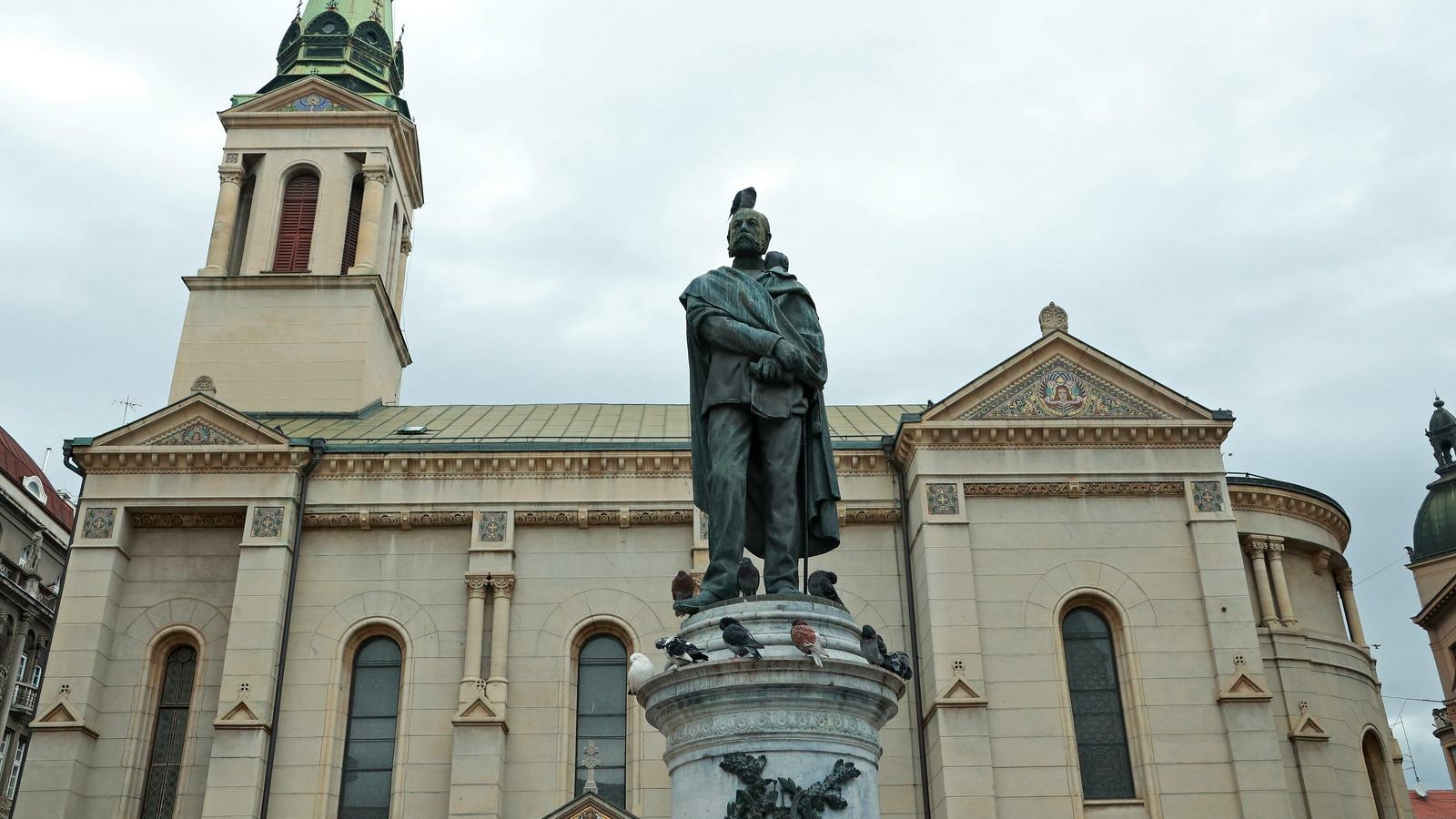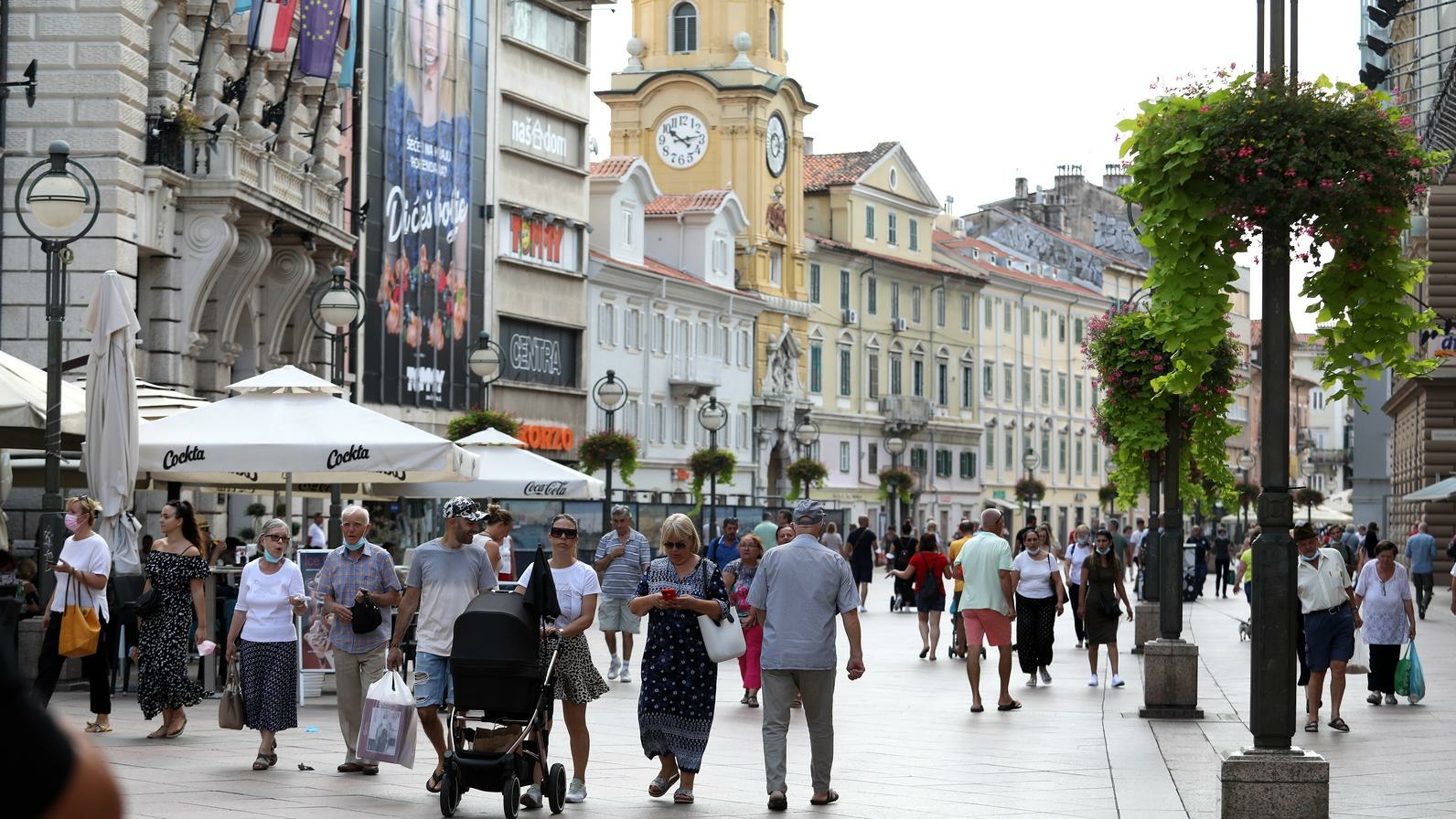It is an old truth, almost a cliché, that those who die young stay for us forever young, unchanged, arrested in time. We grow old – they stay the same. This is especially true if those who departed too early were once stars, which means – young and beautiful, or at least attractive. That is why we are sometimes astonished when faced with the dates and the passage of intervening years, especially if a long time has passed since somebody’s death. For the members of the generation that came of age during the 1980s and loved rock’n’roll the way it was loved then and never again, the thought that Bojan Pečar, the bassist of the most famous lineup of our most tragic band, Ekatarina Velika, would turn 62 today seems almost unimaginable. That intense, eternally fresh face with sharp lines and a piercing gaze of deep green eyes, that long, lean figure with thin, wiry arms, that figure of a young man who always looked like a boy – that is supposed to belong to a 62-year-old man? Of the 38 years Bojan spent on Earth, in the last eight his face did not appear in public. Therefore, for the people who remember him live or at least from pictures and music videos, his expression remains the one from the late eighties, the expression and physiognomy of a man barely thirty years of age. In that sense, that face, as well as the face of the one who, as a center and a pillar, he stood to the right of on the stage for ten years, is the metaphor for a generation that did not have time to grow old. That generation created a period which to many seemed like a briefly experienced and never fully explained paradise, although from the inside, for those who created it, it was often the opposite. Later, when everything went to hell, those faces, unchanged and eternally young, remained a permanent image of that “lost paradise”.
Bojan Pečar was born in 1960 in Belgrade, in a Yugoslav marriage between a Slovenian father and Serbian mother – a fact that was at the time irrelevant and unmentioned and whose emphasizing would have seemed an atavism. Instead, the borders of Belgrade were the borders of Bojan’s immediate world. Even narrower, the center of Belgrade was his world, which meant that he belonged to the kind of people who had a wide outlook on the rest of the country and the world.
As a member of the most urban part of the generation, as a child of the educated, bourgeois class in the period of the country’s economic, social and cultural peak, Bojan, like many of his peers with similar backgrounds and privileges, was able to do only what he was interested in – music, or rock’n’roll as a synonym for music in general. Although naturally talented, he also attended music school, which puts him in the formally educated minority in that famous generation of mostly self-taught musicians. Naturally musical, well-versed in music, curious and talented, he learned and became skilled fast and therefore had strong opinions on how things should sound. He developed as a musician in the time of the greatest experimenting and freedom. People like him were shaped by the times, the cultural moment and the atmosphere, and then they shaped the times, the moment and the atmosphere back.
When, after the first bands – among which only the short-lived Via Talas stands out as a decadent curiosity – he became, in the fall of 1982, a member of Katarina II (who changed their name after their first album to Ekatarina Velika, or – as thousands of fans have been shortening it for decades – EKV), Bojan immediately became an irreplaceable and integral member of the band. He maintained, complemented and enriched the musical foundation and vision of Margita Stefanović and Milan Mladenović. The band’s drummers changed – from the unfortunate Ivica “Vd” Vdović and Ivan “Firči” Feca to Ivan “Raka” Ranković and Žika Todorović, and they all brought their own style. Together with them, as the other part of the rhythm section, Bojan was the backbone of the band, the one who maintained the pulse but also created unusual, functional, discreet but almost spectacular and dramatic basslines, so characteristic for the generation. The first rock’n’roll bands gave the bass guitar to the weakest players. In the new wave and post-new wave period of the eighties, Bojan, like all the best players, instead put thought into the instrument that is heard the least and unconsciously felt the most because it is the instrument that keeps the listener engaged. The pulse of the bassist is the pulse of the listener whether he realizes it or not. With unusual timing, an excellent bass sound, interesting arrangements and playing choices, Bojan recorded six albums, all classic records of Yugoslav rock’n’roll with the band, and played many legendary concerts. Each member of the band had their own type of fan, who approached them after the concerts. Magi was loved by everyone; Milan was loved by the brave, the ambitious and the parasites. Bojan was loved by the girls. And by the guitar players, of course. You could love the band or not, but on the stage, you could not decide who to look at first – they were that charismatic and different from each other.
That is the bright side of the story – the best that we associate with Bojan Pečar, the band and the era.
Lost Children
Alas. Like the other two leading members and like many who passed through the band, like Margita, with whom he was briefly in a relationship, he agreed to a dangerous game and a gamble with life, a walk along the edge of a razor. He began a life of experimentation and then addiction to drugs, and the constant chase of that horrible substance sadly became as important as, if not more important than, the music.
The time of the greatest success of the band, which, ironically, meant it was the time when the deadly habit could be most easily maintained, unfortunately coincided with the beginning of the breakup of the country. The last two facts are definitely connected on a certain level.
Bojan left the band and then did what hundreds and then hundreds of thousands of people from that generation did – he left the country. A musician of his sensibility, style, musical role models and cultural model could only go to London, that mecca for a whole generation. He started painting there; it was another talent he had, like the other members of his tragic band. He also founded an informal band with prominent members of a few important Belgrade bands, who had left for the same reasons. The band had a moving name, the only name they could have had – Lost Children
That was a pre-internet time with little information, and we did not know, except from a rare story or rumor, what or how he was doing there. In the meantime – war. In the meantime, the most important person in his life, Milan Mladenović, died, eaten by a disease and offering himself as sacrifice to the cataclysm he was least responsible for, leaving behind the mark of a person and author against which others are measured to this day. Bassists usually do not get such glory.
The war of all against all ended. Another, short one, against Bojan’s city, would soon start. He would not live to see it. A year before it, on 13 October 1998, the news arrived that Bojan had died. In London, from a heart condition. “Clean”, they said. They said he had earlier uttered a sentence, possibly apocryphal – but even if it never happened, it is as if it had. It is a sentence and scene around which a whole play or movie could be made, built of only that one, most terrible and most honest sentence and a great, tragic, heroic and loser’s gesture – they say that Bojan once stopped in the street in London and shouted: “Do you know who I used to be?!”
More than the appearance
Like every member of Ekatarina Velika, like all good musicians and artists, Bojan was more than what was seen and known, more than the usual clichés and prejudices, even when those prejudices are positive, when they unfairly elevate someone compared to someone else. If anything, artists shatter such prejudice and praise, even when they are in their favor. One of the most ironic examples of such a negation, especially dear to the author of this text, concerns Bojan Pečar. He shared his birthday, 22 March, with Goran Bregović, ten years older than him. In the view of most critics and a large part of the audience in the eighties, Ekatarina Velika was a kind of “opposition” or alternative to Bijelo dugme and Bregović. EKV was urban, and Bijelo dugme was for peasants (!). Since I always viewed this superficial binarism as vulgar snobbery and a false dichotomy, it was an exciting and moving discovery to see, many years later, too late, a short fragment. In the excellent documentary by Dušan Vesić Kao da je bilo nekad, dedicated to the work of EKV, in a blurry shot of the coatroom after the concert, Magi and Bojan sing a couple of lines of a Bijelo dugme song, without any trace of mockery.
Ekatarina Velika always paid a lot of attention to symbols, archetypes and elements, both in Milan’s poetry, their lyrics, in album covers, but also literally: for the album Ljubav from 1987, Margita drew each member of the band a special symbol-ideogram that was supposed to represent Milan’s, Bojan’s, Žika’s and her qualities. I do not remember what Bojan’s symbol was, but I know which natural element I always associated him with: the sound of his bass, especially when he played with his fingers and when he played chords, had something “watery”, flowing about, alongside the strong notes of the pulse. It fit the band that sang “I am the boy from the water”, “Let the water carry it to oblivion” and “Water carries fear”.
22 March is also the World Water Day. Although Bojan’s star sign was Aries, a fire sign, this water defined him in the memory of this fan through one of those subjective associations that form early and are hard to change, but still reveal something sensed and perhaps true. Water is the element of life, birth, cleansing but also death.
A fate of duality
Bojan Pečar, a man who was born and died in metropoles on great rivers, was buried, unusually, in Progar near Belgrade – towards the west. Bojan’s father built a vacation house there, near the river Sava, which runs clean enough for swimming there. Perhaps he wanted to connect those three geographical points that defined his and his son’s life, outside Čorba’s “dirty city” and dirty river, there where it runs clean. Those points start west, beneath the Julian Alps, where Srećko Pečar came from, through the second most important city the Sava runs through, and end in the city at the end, where the Sava joins the Danube.
The Sava, as we know, carries a duality in it, being formed from two different rivers both called Sava, like in an ancient story or myth, and finally becomes one with the Danube in a rare city on two great rivers.
Thinking about the time when Bojan Pečar was a star – young, confident, creative, brilliant – thinking from memories, thinking from a time, that whole era seems like a kind of paradise, a brief paradise. (This is not a contradiction: a lesser-known saint, celebrated on 22 March in the Julian calendar, tried to answer the theological question of how long Adam and Eve spent in paradise before being cast out. It was not certain whether it was hours, a day, three days or forty days.) Looking back on those times from today, seeing the other side, behind the golden sheen of the picture; seeing the lives of the band members, our idols, all dead, emerge from behind the magical music and the stage, the image that appears becomes more and more hellish.
And maybe it was both, with the risk of falling into the same binarism we despised in others when talking about EKV. Maybe that constant binarism of everything about them made sure there was both heaven and hell while still on Earth. Or, as Milan’s paradox in the song “Sedam dana (sam)” says:
“Break, lean on someone,
break, take shelter…”
And offering in a wide gesture or demanding:
“and save time – and yourself for me…”
Which is the same as eternal youth. Certainly eternal youth.
Translation from Croatian: Jelena Šimpraga

This post is also available in: Hrvatski







